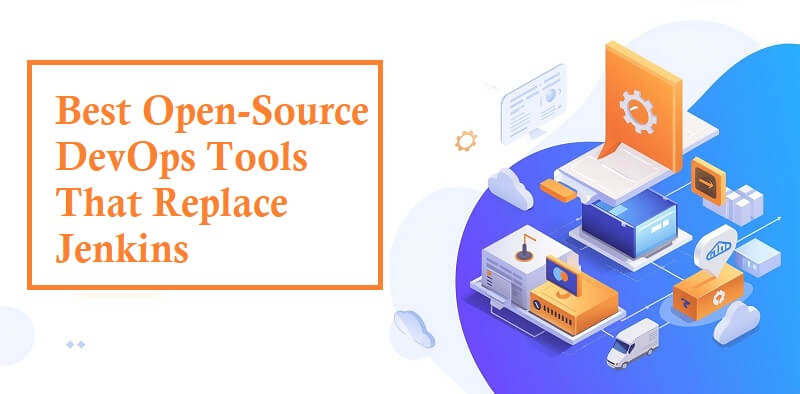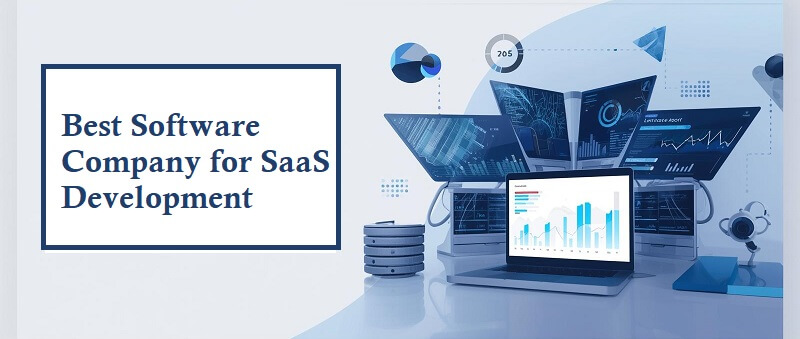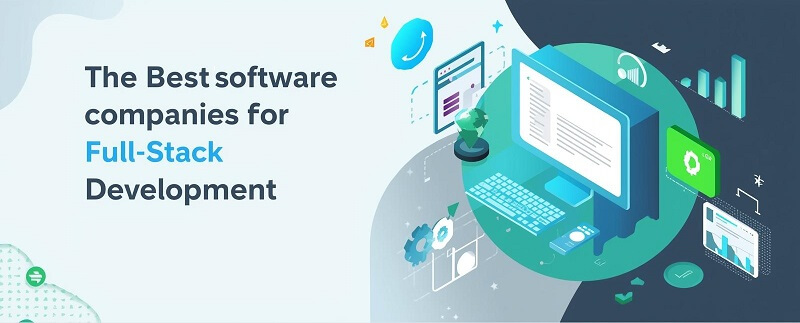Speed, automation, and reliability are crucial in cutting-edge software improvement. Jenkins has been the various top open-supply automation servers that have been utilized in DevOps for years. It has driven thousands and thousands of CI/CD (Continuous Integration/Continuous Delivery) pipelines, allowing teams to write, take a look at, and release code greater quickly. However, with evolving DevOps needs, many teams are now exploring the Best Open-Source DevOps Tools That Replace Jenkins to achieve even faster and more efficient automation workflows.
However, Jenkins is a long way from perfect. Its plugin-primarily based design could make it overly complicated, and its user interface has a tendency to be dated. Most DevOps teams nowadays are searching out Jenkins options that provide more scalability, cloud-local improvement, and less difficult configurations — much like how free SEO tools for indie developers simplify optimization tasks without the need for complex setups.
If you’re on the lookout for open-source DevOps equipment that could take the place of Jenkins, this guide will take you through the excellent options round in 2025.
Why Replace Jenkins?
Before diving into the equipment, it’s vital to recognize why some teams are transferring far from Jenkins.
- Complex Plugin Management: Jenkins relies heavily on plugins, which can create dependency troubles.
- Steep Learning Curve: Setting up and maintaining Jenkins pipelines requires know-how.
- Limited Cloud-Native Support: Jenkins was designed before Kubernetes and field-native improvement have become mainstream.
- UI Limitations: Compared to newer DevOps gear, Jenkins’ interface feels outdated.
- Scalability Issues: Large-scale Jenkins setups require extra protection and assets.
Although Jenkins remains robust, teams who desire new, cloud-native, light DevOps tools are seeking alternatives.
Features to Seek in a Jenkins Replacement
When selecting an open-supply DevOps device, don’t forget these vital capabilities:
- Easy setup and configuration
- Native CI/CD pipeline aid
- Cloud and field-native structure (Kubernetes, Docker)
- Large-mission scalability
- Strong community aid and documentation
- Integration with many.
- Automated testing and deployment talents
Best Open-SUS Devaps Tools changing Jenkins
The following are the best equipment that developers and devops engineers are changing as Jenkins options.
1. Gitlab CI/CD
Ideal for: single-platform all-in-one devops with integration in GIT repository
Gitlab CI/CD is originally integrated into the Gitlab platform, providing end-to-end devops experience. It includes version control, tracking release and CI/CD pipelines within the same platform.
key features:
- Domestic integration with gitlab repository.
- Yaml-based pipeline configuration.
- Integrated Container Registry.
- Kubernetes support for cloud-country deployment.
- Enterprises and Startup-Skeel.
Why it replaces Jenkins: Gitlab CI/CD is plug-and-play compared to Jenkins, all but basic functions require plugins. For existing Gitlab users, this is the most organic upgrade.
2. Tekton
Best for: Kuberanets-Environment CI/CD Pipelines
There is an open-source, Kuberanets-Environment CI/CD system from the Tatan CD Foundation. It gives the developers a re-purpose building block to create CI/CD pipelines.
key features:
- It is designed for Kubernetes at its core.
- Extensible, Cloud-Environment Pipeline System.
- Support for many CI/CD systems.
- Declarative Yamal pipelines.
- Strong support from the community through the CD Foundation.
Why does it do better than Jenkins: Tekton is lighter, modular and cloud-country than Jenkins. This is the best for teams that execute the workload within the Kuberanets cluster.
3. Drone CI
Best suited to: Lightweight, container-native automation
Drone CI is a containerized CI/CD platform that is open-source. It has every step of the pipeline run within a Docker container, and it is extremely portable and scalable.
Main Features:
- It is easy to configure using YAML files.
- Strong integration with github, gitlab and bitbucket.
- Container-based execution for portability.
- Scalable across many environments.
- Clean and modern UI.
Why It Replaces Jenkins: Drone CI is much simpler than Jenkins, and its container-based method is very much in tune with today’s DevOps methodologies.
4. Argo Workflows
Best suited for: Workflow automation in Kubernetes
The Argo workflows are a part of the Argo project and are specifically sewn for CI/CD workflows based on Kuberanets. It provides a simple means to define multi-step workflow as Kuberanets CRDS (custom resource definitions).
key features:
- Kuberanets-Environment Workflow Engine.
- Parallel execution of jobs.
- GitOps integration.
- View UI for Workflow Management.
- GitOps spontaneous integration with ArgoCD for purification.
Why It Takes Jenkins’ Place: Argo Workflows is more scalable and efficient for Kubernetes users than Jenkins, eliminating cumbersome plugin configurations.
5. Concourse CI
Ideal for: Pipeline-centric automation
Concourse CI is an open-source CI/CD platform that is simple and elegantly visualizes pipelines. It is reproducible and focuses on automation.
Key Features:
- Easy YAML definitions of pipelines.
- Lightweight and minimalistic.
- Powerful Docker integration.
- Horizontal scaling with ease.
- Integrated pipeline visualization.
Why it replaces Jenkins: Concourse relieves the problems of CI plugin dependence and provides clear, manifesto pipelines, making automation easier than Jenkins.
6. Spinnaker
Most suitable for: continuous distribution on scale
Spinnekar, initially developed by Netflix, is an expert in multi-cloud continuous delivery. It helps teams to automate deployment in various environments.
key features:
- Multi-cloud support.
- Sophisticated deployment strategies.
- Kuberanets-Entegration.
- Inbuilt monitoring and rollback.
- Large -scale enterprise adoption.
Why does this replace Jenkins: Although Jenkins can be used for deployment, Spinnekar provides enterprise-class continuous delivery out of the box, reducing the complexity of the scale.
7. GoCD
Best suited for: Complex release management
GoCD is an open-source tool created by Thoughtworks that excels in modeling complex builds and release pipelines.
key features:
- Value stream mapping for pipelines.
- Native support for complex workflows.
- In-built visualization of deployments.
- Cloud and on-premises environment support.
- Plugin ecosystem for extensions.
Why It Replaces Jenkins: GoCD handles complex, multi-step pipelines better than Jenkins and provides visualization tools that help track releases effectively.
8. Buildbot
Best for: Highly adaptable construction automation
Buildbott is a python-based automation tool focused on continuous integration and testing.
key features:
- Flexible configuration in Python.
- Scalable for large projects.
- Integration with many VCS (GIT, Mercurial, etc.).
- Customizable automation workflow.
- Strong community of developers.
Why it replaces Jenkins: for teams that prefer python-based adaptation, the buildbot provides more flexibility than Jenkins’ plugin-powered system.
9. CircleCI:
Ideal for: Scale CI/CD pipelines
Even though CircleCI’s cloud service is quite powerful, the open-source version lets teams set up their CI/CD pipelines right on their own servers.
key features:
- Parallel builds for faster execution.
- YAML-based configuration.
- Pre-built Docker images for pipelines.
- Strong community and documentation.
- Integration with GitHub and Bitbucket.
Why it Replaces Jenkins: CircleCI offers a newer developer experience than Jenkins and involves less manual configuration.
10. Zuul CI
Ideal for: GIT-driven project automation
Zuul CI is an open-source CI/CD system that has previously been developed for OpenStack Projects. It focuses on Project Getting to allow only the merger of the tested codes.
key features:
- Robust GitHub/GitLab integration.
- Project gating for secure merges automated.
- Enterprise workflows are scalable.
- Flexible job execution model.
- Suitable for large, distributed teams.
Why It Replaces Jenkins: Zuul’s gating system guarantees better code quality, which Jenkins pipelines typically only get after heavy customization.
Rapid Comparison of Jenkins Alternatives
- GitLab CI/CD: Best DevOps all-in-one solution.
- Tekton: Best for CI/CD Kubernetes-native.
- Drone CI: Best container-based, lightweight tool.
- Argo Workflows: Best workflow automation for Kubernetes.
- Concourse CI: Best for easy, transparent pipelines.
- Spinnaker: Best for enterprise continuous delivery.
- GoCD: Best for intricate release management.
- Buildbot: Best Python-based customization.
- CircleCI (Self-hosted): Best for scalable pipelines.
- Zuul CI: Best for Git-driven gating.
How to Select the Right Jenkins Alternative
- If you are already using GitLab – GitLab CI/CD.
- If you operate Kubernetes clusters – Tekton or Argo Workflows.
- If you require lightweight CI/CD – Drone CI or Concourse CI.
- If you are operating enterprise-scale delivery – Spinnaker or GoCD.
- If you prefer Python flexibility – Buildbot.
- If you like Git-driven automation – Zuul CI.
Migration from Jenkins to Alternatives
The migration from Jenkins needs to be planned well. Here is a simple plan:
- Audit Current Pipelines: See what Jenkins is doing for your team.
- Map Features: Equate existing Jenkins work with features in the new tool.
- Test in Parallel: Execute your new CI/CD pipelines in parallel with Jenkins for now.
- Train teams: Train developers and Devaps engineers in the new system.
- Migrate slowly: infection projects at a time to prevent dissolution.
Final Thoughts
Jenkins has had a huge effect on DevOps growth, however the global is transferring in the direction of cloud-native, containerized, and scale-out solutions.
The quality part is there are numerous open-source DevOps alternatives to Jenkins that substitute for it well. If you require Kubernetes-native pipelines (Tekton, Argo), field automation mild (Drone CI), or organisation-stage delivery (Spinnaker, GoCD), there may be a solution for you.
By choosing the proper alternative, teams can streamline workflows, scale effortlessly, and adopt new-age DevOps practices without being sure by the regulations of Jenkins.









